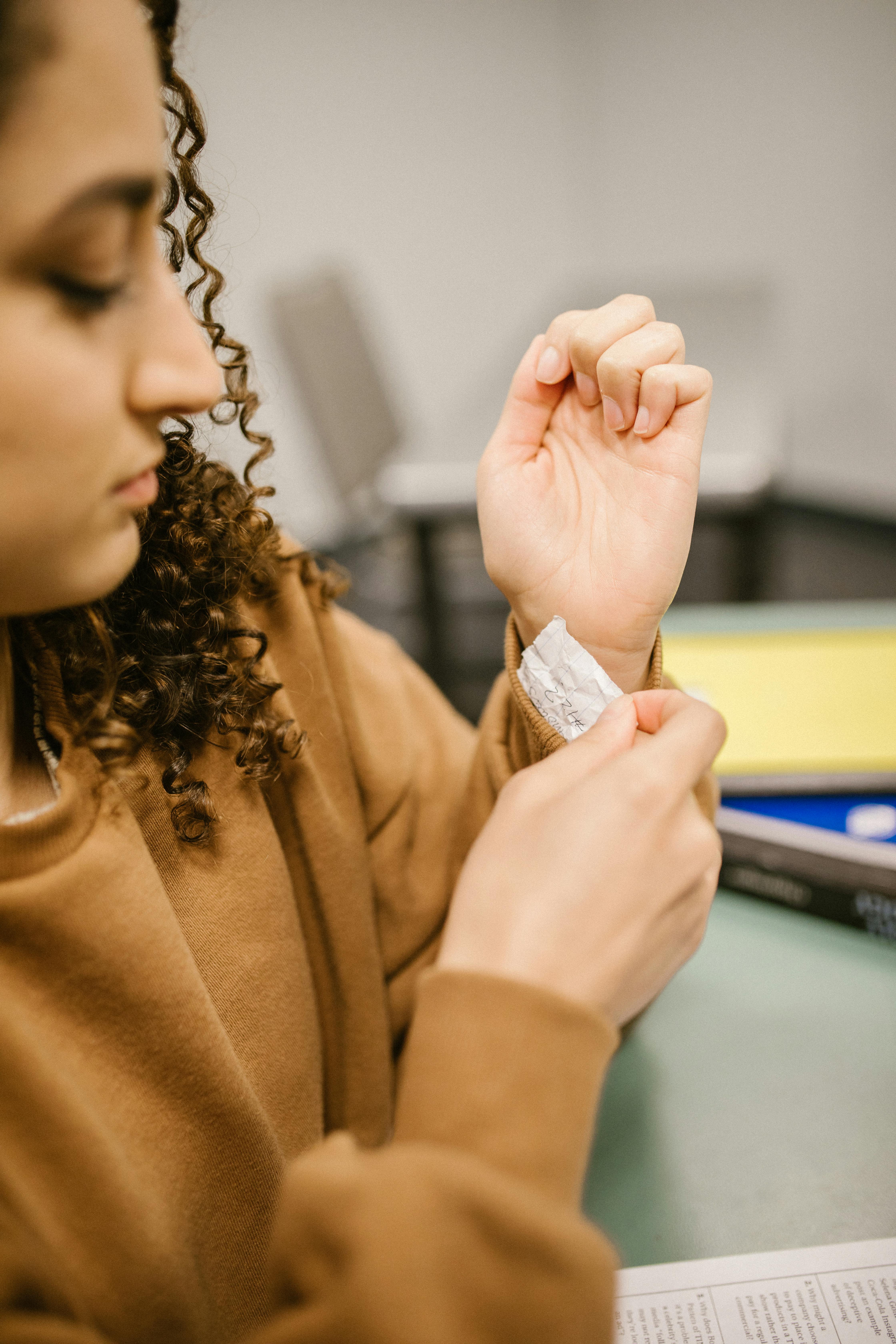
Effective Ways to End a Cover Letter: Tips to Succeed in 2025
Crafting a strong conclusion for your cover letter is essential to leaving a **positive impression** on recruitment professionals. The way you **end a cover letter** can set the tone for further interactions and demonstrates your **professional tone** and readiness to engage. This guide presents essential strategies, ensuring you not only **express interest** but also significantly enhance your chances of making a lasting impact. Here, you'll discover how to write compelling **closing statements** that align with contemporary hiring expectations.
Create a Powerful Closing Statement
When drafting your cover letter, the closing statement should effectively encapsulate your intentions and express appreciation. A well-crafted **closing statement** serves as a definitive moment summarizing your application. Use this opportunity to **highlight qualifications** and reiterate why you are a suitable candidate for the role. Keeping your language concise, yet impactful, allows you to **reinforce suitability** without diluting your main message.
Gratitude as a Polite Gesture
Extending a sincere note of **gratitude** can enhance your letter significantly. Thanking the hiring manager for their time indicates respect and acknowledges the effort they place in reviewing applications. Phrases like “**thank you for consideration**” can create a **courteous conclusion** and build rapport. A **thank you** not only conveys appreciation but subtly nudges at your readiness to commence future discussions with the potential employer. This respectful **polite gesture** helps reinforce a **positive closure** to your interaction.
Encourage Response with an Amicable Tone
Ending on a note that **encourages a response** can position you favorably in the eyes of the hiring manager. An effective strategy is to ask for a follow-up or an opportunity to discuss your qualifications in greater detail. Such phrases as “I look forward to discussing my application further” or “I hope to explore the opportunity to contribute to your team” promote a sense of enthusiasm about future interactions. Using an **amicable tone** in your concluding paragraph shows that you are approachable and reinforces that you are committed to the process.
Tailored Closing with Contact Information
Always include a closing that is tailored to both the job and the organization. Reference skills or responsibilities outlined in the job description to create a seamless connection between the role and your experience. Also, do not forget to provide your **contact information**. A well-placed “I can be reached at [your phone number] or [your email]” signals your **readiness** and eagerness to engage in further discussions. This **summary of intentions** serves as a strong closing to your cover letter and accentuates your **commitment** to follow through.
Show Enthusiasm in Your Conclusion
Expressing genuine enthusiasm about the position can dramatically affect your cover letter's subsequent consideration. Use energetic language to indicate your desire for the position, appealing to the reader’s emotions as well as their logic. Your **concluding paragraph** should leave the reader feeling your **commitment** and readiness to fit within their team.
Reiterate Your Qualifications
Highlighting qualifications is crucial here. Think of your conclusion as a mini “elevator pitch.” Include a brief summary of your specific strengths and experiences relevant to the job role. Reference how your past experiences prepared you for the challenges of the position, maintaining a tone of **confidence** in your abilities. Utilize this subsection to **remind strengths** succinctly and effectively.
Indicate Readiness for Future Discussions
Indicating your eagerness for **future meetings** reinforces your **applicant profile** as proactive. Use language such as “I am excited to discuss how my background can be a valuable asset to your team.” This connects your achievements to the company’s needs while making it apparent that you are looking forward to further dialogue. Ensuring an exciting and confident outlook leaves a **last impression** that positions you as a viable candidate.
Close with Confidence
Lastly, the final touch is a **formal sign-off** combined with an assertive closing statement. An effective closing may include phrases like “I am looking forward to your feedback” or “I eagerly await your response.” Ending with "Sincerely," followed by your name underscores professionalism. This final note ensures a **strong closing** that is both respectful and confident, showcasing your intention to stay engaged throughout the hiring process.
Implementing Best Practices
To further solidify your cover letter's strength, it's advisable to embrace best practices that help convey distinct professionalism and clarity. By following these techniques, applicants can significantly enhance their communication skills, leading to more compelling applications. Remember that an effective narrative also relies on consistency and an engaging structure.
Utilize Professional Language Techniques
Implementing language that resonates with the desired company culture can elevate your letter. Use industry-specific jargon and compelling phrases to demonstrate alignment with the company's values. This research-driven approach not only showcases **impactful communication** but also nurtures how the hiring manager perceives you as a potential team member. Be careful to balance professionalism with a **personalized outreach** that encapsulates both **engagement** and your authentic voice.
Follow-Up Strategies
Consider planning a follow-up once you’ve sent your application. Sending a polite email inquiring about your application status no later than one week after submitting shows **initiative** and **commitment**. It’s a subtle way of remaining on the radar without overwhelming the hiring manager. Leverage this opportunity to reiterate your **interest** in the position, showcasing how eager you are to work with the prospective team.
Maintain a Cohesive and Engaging Tone
Lastly, ensure coherence throughout your letter and pay delicate attention to your tone of voice. A **cohesive message** bonds your qualifications to the job while an engaging tone builds rapport with the reader. Using captivating expressions reveals your uniqueness as an **outstanding candidate** and helps them envision your potential contributions to their organization.
Key Takeaways
- Craft a strong closing statement summarizing your qualifications and intentions.
- Express sincere gratitude as a respectful gesture.
- Indicate readiness for future discussions and make it easy for the hiring manager to respond.
- Utilize professional and congenial language to affirm your interest and suit the company culture.
- Plan for a timely follow-up to maintain engagement and demonstrate proactivity.
FAQ
1. How important is the closing statement in a cover letter?
The **closing statement** is critical as it can strongly influence the hiring manager’s impression of your application. A thoughtful and well-crafted conclusion leaves the reader with a sense of confidence in your candidacy and keeps the door open for future communication.
2. What should I include in my cover letter ending?
In your cover letter's conclusion, you should express gratitude, mention your eagerness for next steps, and provide your contact information. A memorable, assertive closing will round off your letter effectively, reinforcing your suitability and demonstrating professionalism.
3. Can I use humor in my cover letter closing?
While humor can be effective in certain contexts, it’s generally safer to maintain a **polite and professional tone** unless you know the organization appreciates a relaxed approach. Always consider the company culture before incorporating humor.
4. How can I make my closing statement stand out?
To make your closing statement stand out, personalize your message based on the position and company. Use energetic language and highlight how your background could add value, emphasizing a potential contribution to their team. This bespoke approach ensures your candidacy remains memorable.
5. What is the best way to say thank you in a cover letter?
You can simply state, “**Thank you for considering my application**” or “I appreciate the opportunity to be considered for this role.” Expressing gratitude clearly and respectfully reinforces your professionalism and creates a positive tone heading into future interactions.
6. Should my contact information be in the closing paragraph?
Yes, including your **contact information** in the closing paragraph helps facilitate communication. It ensures that the hiring manager knows exactly how to get in touch with you, which reflects your commitment and readiness to engage.
7. How can I express my interest moving forward?
Articulate your desire for further discussions by using phrases like “I look forward to the opportunity to discuss my application” or “I am excited about the potential to contribute to your team.” These expressions highlight your enthusiasm and eagerness for the role.

